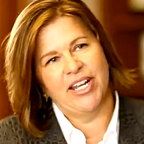Welcome to the Course
#COM520 Media Studies at the University of Rhode Island
I’m excited to be teaching this course as a F2F and blended learning experience for graduate students. See what we’re planning to do this semester by reading the course syllabus!
Check out Our Keywords Collaborative Slide Deck
Preview of Key Ideas
All around the world, people participate in media culture by listening to music, watching television and movies, using social media, playing videogames, and learning about current events. But few people understand the complex institutions, policy and governance structures, and psychological processes that shape what we read, watch, see, listen to and play.
Media studies is an interdisciplinary field with a focus on media texts, industries, and audiences. Scholars use a variety of different methodologies and approaches to understand complex phenomena like fake news, and each of these approaches has strengths and limitations that embody the limits of human knowledge and understanding. The research process is a journey of discovery, where through the creative combination of ideas, new insights emerge.
The study of media has moved from its early roots in the interdisciplinary examination of the arts, culture, and current events towards the more disciplinary and professional study of media forms (including book and magazine publishing, journalism and news media, advertising and public relations, narrative and non-narrative film, popular music, videogames, the Internet and social media). Critical examination of media institutions, representations, and ideologies has advanced an understanding of the ever-changing power relationships in relation to economic, political, and cultural contexts.
All around the world, growing concerns about data protection, privacy, ethics, and infringements of public liberties have increased government attention to inequalities and discrimination. New forms of propaganda by cyber-racists can undermine the value of racial equality and wreak havoc on democratic ideals.
Propaganda is now personalized in information, entertainment, and persuasion. Through the practice of influence marketing, influencers establish a sense of authenticity through the representation of the intimate and private self, adopting techniques to show equality and commonality with audiences. As media usage is completely intertwined with intimate social relationships in a networked society, people need strategies to shield themselves from these subtle forms of coercion.
A deeper understanding of the meaning and scope of the First Amendment and an appreciation for the appropriate role of media industry regulation is needed to balance the interests of free expression and social responsibility. To support these efforts, media literacy education must evolve to help people understand how media texts, audiences, systems, actions, and institutions intertwine in ways that create conditions for propaganda to thrive.
Learning Outcomes
These learning outcomes are expected for every participant. Students will:
Gain Knowledge
1. Learn about some key theoretical concepts from the arts and social sciences that have contributed to the disciplinary tradition of media studies;
2. Examine the historical development of propaganda and technology, with attention to the relationship between texts, audiences, and institutions;
3. Understand how media researchers advance knowledge through inquiry.
Develop Research and Communication Competencies
5. Advance reading, research and writing skills by gathering, accessing and evaluating information using print and online materials, including reference books, professional and scholarly publications, reports, and web content;
6. Develop production, performance and self-expression competencies through creating media in a variety of written, oral, digital and multimedia productions.
7. Strengthen collaboration, creativity and critical thinking skills through activities that require the synthesis of divergent ideas, information, and concepts;
8. Deepen reflective awareness of the role of media and technology in your own life.
